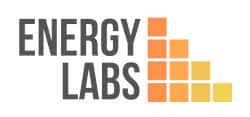If you’re looking to buy an air source heat pump water heater (ASHPWH) for your home, it’s important to understand what type of refrigerant is used. Refrigerants are essential components of any air conditioning or cooling system and can help reduce energy costs and improve efficiency. In this article, we’ll cover the different types of refrigerants used in ASHPWHs and their benefits.
The most common type of refrigerant used in an ASHPWH is R-134a, which is a hydrofluorocarbon (HFC). HFCs are non-toxic, non-flammable substances that don’t react with other chemicals in the environment. R-134a has a low Global Warming Potential (GWP), meaning it won’t contribute significantly to climate change. It also has a high cooling efficiency, meaning it will cool quickly and efficiently.
R-410A is another type of refrigerant that’s often used in ASHPWHs. This refrigerant is also an HFC but has a slightly higher GWP than R-134a. It is more efficient than R134a at higher temperatures and pressures, making it ideal for applications with high heat loads such as air source heat pumps.
Propane and butane are two other common types of refrigerants used in air source heat pump water heaters. These hydrocarbons have a very low GWP but can be flammable if they escape from the system or if they’re mixed with other substances. As such, they must be handled carefully by a qualified technician when installing or servicing an ASHPWH with these types of refrigerants.
Finally, some ASHPWHs use carbon dioxide (CO2) as their primary refrigerant. CO2 has the lowest GWP of all the available refrigerants and is non-toxic and non-flammable. However, it does require higher pressures than other types of refrigerants so it’s usually only used in systems designed to operate at these higher pressures.
Whatever type of refrigerant you choose for your ASHPWH system, make sure you get advice from a qualified technician before making any decisions about installation or servicing the system yourself – safety should always come first when dealing with potentially hazardous substances like these!
